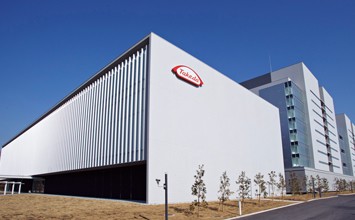
Japanese approval for AZ lung cancer drug
pharmafile | March 29, 2016 | News story | Manufacturing and Production, Sales and Marketing | AstraZeneca, Tagrisso, lung cancer
AstraZeneca’s Tagrisso (osimertinib) has been approved in Japan for the treatment of a specific form of clung cancer.
Japanese regulator, the Ministry of Health, Labour and Welfare (MHLW), approved the drug for patients with epidermal growth factor receptor (EGFR) T790M mutation-positive inoperable or recurrent non-small cell lung cancer (NSCLC) that is resistant to EGFR tyrosine kinase inhibitor (TKI) therapy.
Sean Bohen, executive vice president, Global Medicines Development and chief medical officer at AstraZeneca, comments: “We continue to move at an unprecedented pace with osimertinib, with the full approval in Japan following closely the recent US and EU approvals. As first-in-class lung cancer treatment directed at the T790M mutation, we are delighted that this targeted medicine is now available to patients in Japan to address the existing unmet medical need.”
Dr Tetsuya Mitsudomi, Division of Thoracic Surgery, Department of Surgery, Kinki University Faculty of Medicine says: “A significant proportion of Japanese patients with lung cancer have the EGFR mutation and about 60% of them are likely to develop the T790M resistance mutation following initial TKI treatment. Osimertinib enables us to respond to this disease progression in a precise and logical way as clearly demonstrated in clinical trials, with potential to make a meaningful difference to the lives of Japanese patients.”
Approximately 30-40% of Asian patients with NSCLC have the EGFR mutation, and almost two thirds of these patients whose disease progresses after treatment with an EGFR-TKI develop the T790M mutation, for which treatment options are currently limited.
Tagrisso (osimertinib) targets both the EGFR mutation involved in cancer development and T790M, a mutation that makes tumours resistant to existing treatment with EGFR-TKIs.
AstraZeneca developed a test with in collaboration with Roche to discern patients’ mutation status.
The Japanese approval is based on data from the two multinational AURA Phase II trials (AURA extension and AURA2), with 22% of patients enrolled from Japan. Tagrisso elicited an objective response rate of 61.3% and 70.9% in the two trials.
Joel Levy
Related Content

Roche’s Alecensa approved by FDA as lung cancer treatment
Roche has announced that the US Food and Drug Administration (FDA) has approved Alecensa (alectinib) …

FDA clears Oryzon’s phase 1/2 trial for lung cancer treatment
Oryzon Genomics has announced that the US Food and Drug Administration (FDA) has approved its …

AstraZeneca shares results for Imfinzi in phase 3 trial for small cell lung cancer
AstraZeneca has announced positive high-level results from the phase 3 ADRIATIC trial, which demonstrated that …








